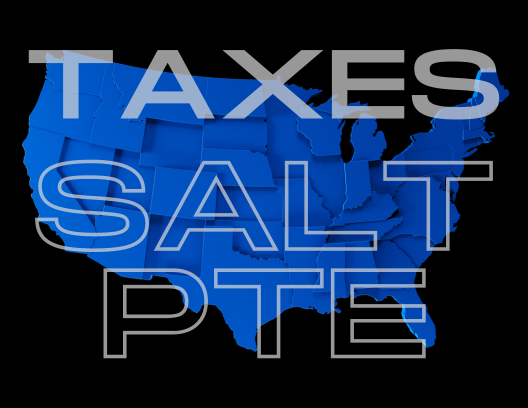In response to the Tax Cuts and Jobs Act of 2017 (TCJA) limiting an individual’s state and local tax (SALT) deduction to $10,000, a number of states that were disproportionately affected by this provision quickly enacted so-called ‘workaround’ programs. Connecticut became the first state to enact a pass-through entity (PTE) level income tax specifically as a workaround.
In general, a qualified PTE – an entity taxed as an S corporation, partnership, or an LLC taxed as either of the two – pays a PTE tax on behalf of the owner’s/partner’s share of their qualified net income from the entity.
- This will generate a tax deduction on the entity’s federal return, which in turn reduces the taxable income reported on the owner’s/partner’s federal K1. Hence, providing a deduction for the state taxes related to that income that otherwise would be limited to $10,000, if paid by the individual and deducted on their personal return.
- Additionally, the owners/partners are entitled to a credit on their specific state tax return for any taxes paid by the PTE, thus effectively shifting the majority of the personal income tax responsibilities from individual owners to the PTE.
The IRS issued Notice 2020-75 announcing its plan to propose regulations that confirm certain PTEs are not subject to the $10,000 SALT deduction limitation imposed by the TCJA. The notice provided a high-level assurance that the IRS would allow PTE workarounds similar to Connecticut’s program. The issuance of the notice has resulted in the majority of states with income taxes enacting some type of income-based workaround program.
Since then, many jurisdictions have enacted or have proposed PTE taxes. However, in order to take advantage of these PTE taxes, most states require elections by the entity. The American Institute of Certified Public Accountants (AICPA) has pointed out each state’s rules regarding many factors pertaining to PTE taxes vary greatly. Each state’s PTE tax rules must be reviewed carefully to ensure that decisions regarding whether or not to make an election should be made and the appropriate manner and timing to do so.
Here is a list of jurisdictions that have enacted a PTE tax since the TCJA SALT limitation was first put into place:
Alabama, Arkansas, Arizona, California, Colorado, Connecticut, Georgia, Hawaii, Iowa, Idaho, Illinois, Indiana, Kansas, Kentucky, Louisiana, Massachusetts, Michigan, Maryland, Minnesota, Missouri, Mississippi, Montana, North Carolina, Nebraska, New Jersey, New Mexico, New York, Ohio, Oklahoma, Oregon, Rhode Island, South Carolina, Utah, Wisconsin, West Virginia, and New York City.
Additionally, Maine, Pennsylvania, and Vermont have proposed PTE tax bills.
With the nine states that do not have an owner level personal income tax, the only jurisdictions that currently do not have a proposed or enacted a PTE tax are the District of Columbia, Delaware, and North Dakota.
HAVE QUESTIONS?
If you need assistance or have any questions on the information in this article, please call your CironeFriedberg professional. You can reach us by phone at (203) 798-2721 (Bethel), (203) 366-5876 (Shelton), or (203) 359-1100 (Darien) or email us at info@cironefriedberg.com.





